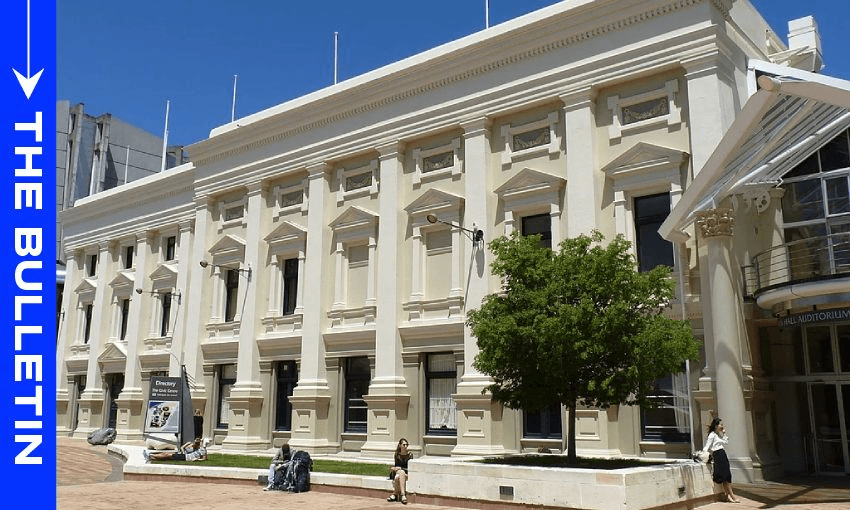All eyes are on the election but with the cost of repairing Wellington’s Town Hall now forecast at $250-$330m, and Aucklanders being warned about significant rate rises, our cities and the way local government works might need some focus, writes Anna Rawhiti-Connell in this excerpt from The Bulletin, The Spinoff’s morning news round-up. To receive The Bulletin in full each weekday, sign up here.
Wellington and Auckland mayor want revenue sharing
Talk of local government reform seems to have slipped down the side of the couch following the release of the final report from the Future for Local Government review panel in June. The panel’s recommendation that “more money flow from central to local government” as people increasingly talk of “peak rates” must sound like a land of milk and honey to our councils right now. Tax revenue sharing, flowing from central to local government, is a point of agreement between Wellington mayor Tory Whanau and Auckland mayor Wayne Brown. “Rates and parking meters just aren’t enough to pay for the massive infrastructure projects councils are expected to handle,” says Brown.
Cost of repairing Wellington’s Town Hall now forecast at $250-$330 million
Yesterday, Wellingtonians found out that the cost of repairing Wellington’s Town Hall has blown out again, with projections now forecast at $250-$330 m, up from a previous estimated completion cost of $182m. I spoke to our Wellington editor, Joel MacManus, who attended the press conference about the blowout yesterday. He says mayor Tory Whanau is very clearly frustrated. “She wasn’t on council when the initial decision was made, but she made it clear today that she wouldn’t have supported the build if she knew it would have been this expensive,” he told me. “Unfortunately, with how much has already been spent, it would be a waste of money to stop now,” he said. As The Post reports this morning, the council is somewhat hamstrung. The historic building cannot be demolished because of its heritage listing, and its earthquake-strengthening deadline is next year. If the council paused the project it might have to take enforcement action against itself.
Mayor denies financial crisis
As the Herald Georgina Campbell reports (paywalled), Whanau started yesterday’s press conference by addressing claims made by councillor Diane Calvert that the council is facing a financial crisis. Whanau said it was “simply not true” that the city was facing a financial crisis and strong investment was still being planned for the city and that she wouldn’t propose removing or deeply cutting services unless that was something the community wanted. The Town Hall is the only building with issues. The Opera House and the Michael Fowler Centre have recently being deemed earthquake-prone and work on the central library has a $217m cost attached.
Auckland mayor takes aim at National’s plan to scrap the regional fuel tax
Some might argue that it’s farcical to be talking about tax cuts that might deliver some people $20 a week and GST off fruit and vegetables, while Wellington deals with an endless stream of large infrastructure challenges and Aucklanders might be dealing rate rises that total up to 20% by next year. Five days ago, Aucklanders were warned that rates may rise by 13% and water bills by 20% next year. That follows a 7.7% increase this year. Yesterday, Wayne Brown took aim at National’s plan to scrap the regional fuel tax (RFT) and Labour’s Three Waters reforms. Scraping the RFT could create a $2b deficit in transport infrastructure funding, he says. That’s now being disputed by National. In a statement last night, the mayor said, “After the election, the Mayor looks forward to sitting down with the government, whomever that may be, and working out a plan that makes sense for Auckland.” It’s safe to say there will be a queue for those conversations, with the local government review concluding that “the series of compounding crises we are experiencing are unlikely to abate… all of these challenges are felt at place and will only intensify over the next 30 years.”
